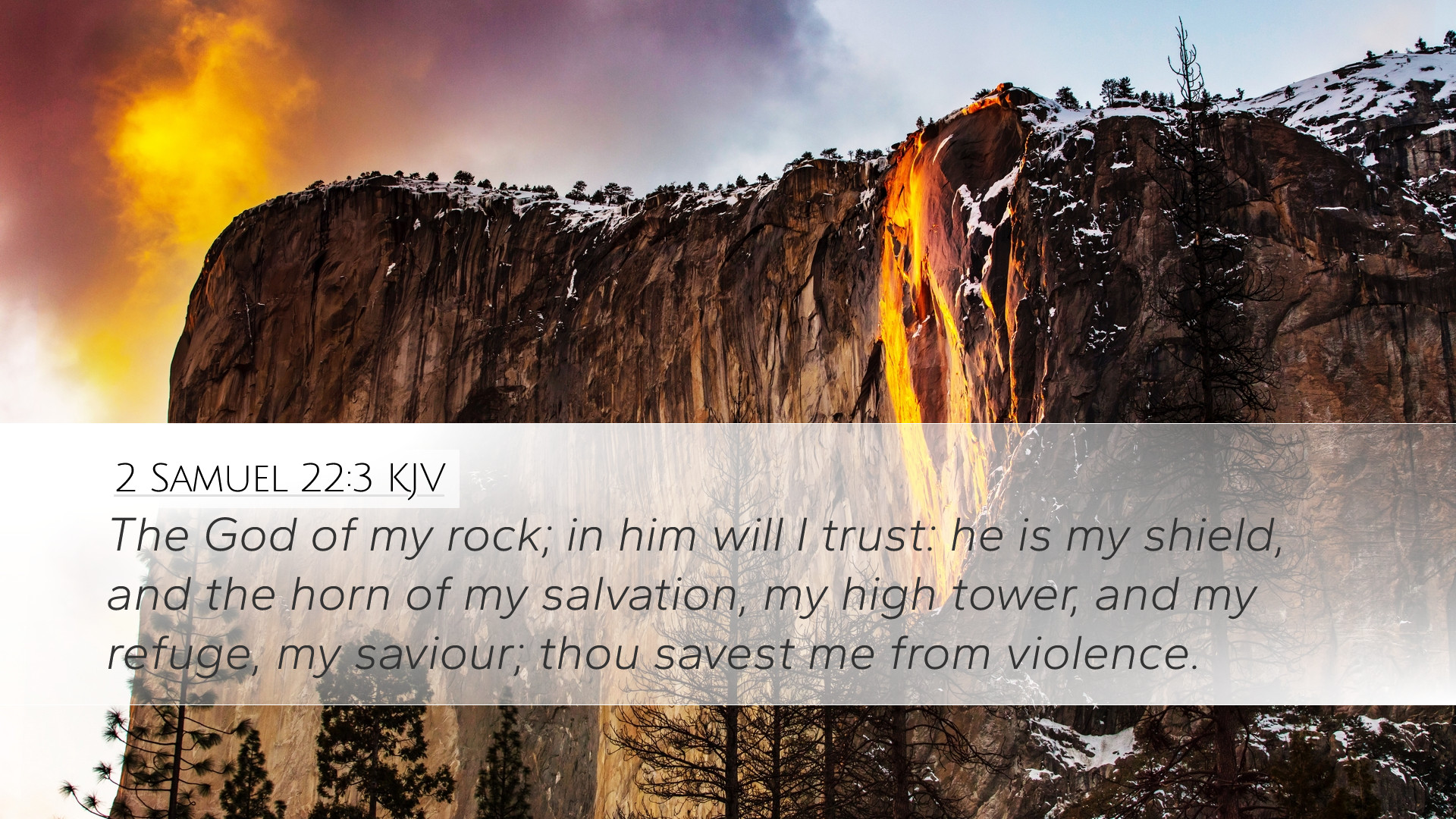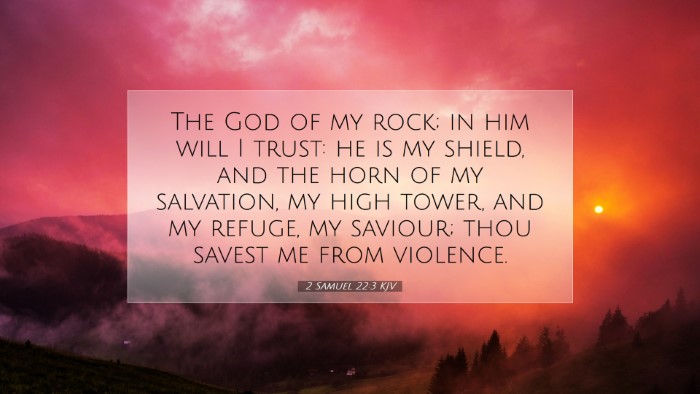Commentary on 2 Samuel 22:3
2 Samuel 22:3 states:
"The God of my strength, in whom I will trust; my shield, and the horn of my salvation, my high tower, and my refuge, my savior; thou savest me from violence."
Overview
This verse is part of the song of David, which reflects his deep personal relationship with God. It encapsulates David's trust in God's protection and deliverance from his enemies. The imagery used here illustrates the multifaceted nature of divine support and strength, making it significant for pastors, theologians, and students of the Bible.
Insight from Matthew Henry
Matthew Henry emphasizes the personal nature of David's relationship with God, noting that David addresses God as "my strength." This reflects a profound acknowledgment of God's active presence in his life. Henry points out:
- The Personal Relationship: David sees God not simply as a distant deity but as his personal savior and protector.
- Imagery of Defense: The titles "shield" and "horn of my salvation" denote strength and security, illustrating the Lord as a warrior protecting those who trust in Him.
- Deliverance from Violence: The mention of violence highlights the adversities faced by David, yet he affirms God’s deliverance, which reassures the believer's confidence in facing hostile forces.
Insights from Albert Barnes
Albert Barnes provides a pastoral perspective, rooting his commentary in the theological implications of the verse:
- Faith and Trust: Barnes notes that faith is both a shield and a refuge, encouraging believers to trust in God amid life's challenges.
- The Symbolism of Salvation: The "horn of my salvation" symbolizes strength and victorious power. It indicates that God equips his people with the necessary resources to confront their battles.
- Refuge in God: The concept of God as a "high tower" offers protection and safety, reminding believers that God provides a sanctuary away from life's storms and trials.
Thoughts from Adam Clarke
Adam Clarke elucidates the depth of David’s declarations, focusing specifically on the poetic elements of his exaltation of God:
- Composite Assurance: Each title ascribed to God underscores a unique aspect of His character—strength, trustworthiness, protection, salvation. Clarke notes that this clustering of attributes reinforces the comprehensive nature of God's aid.
- Liturgical Context: His song can be viewed as an act of worship, offering a model for believers to articulate their dependence on God in both private and corporate contexts.
- Violence as Metaphor: The mention of being saved from "violence" not only speaks to physical threats but can also symbolize spiritual warfare, emphasizing the multidimensional support God provides.
Application for Pastors and Theologians
In applying this verse to the lives of congregations and individuals today, pastors and theologians may consider the following:
- Encouragement during Trials: Encourage congregants to see God as a personal protector who can be trusted during their struggles and challenges.
- Strength in Worship: Foster an environment where the attributes of God are regularly celebrated in worship, helping believers articulate their reliance on Him.
- Understanding Violence: Provide clarity on how spiritual aggression or personal hardships can be faced through reliance on God's strength, emphasizing the hope of salvation he offers.
Conclusion
2 Samuel 22:3 serves as a significant reminder of God's unchanging character and His nearness to those who seek refuge in Him. Through the insights of Matthew Henry, Albert Barnes, and Adam Clarke, the believer is equipped with a rich understanding of the protective and saving power of God. As we engage with this verse, we are encouraged to embrace our relationship with God, drawing upon His strength and provision as we navigate the complexities of life.


